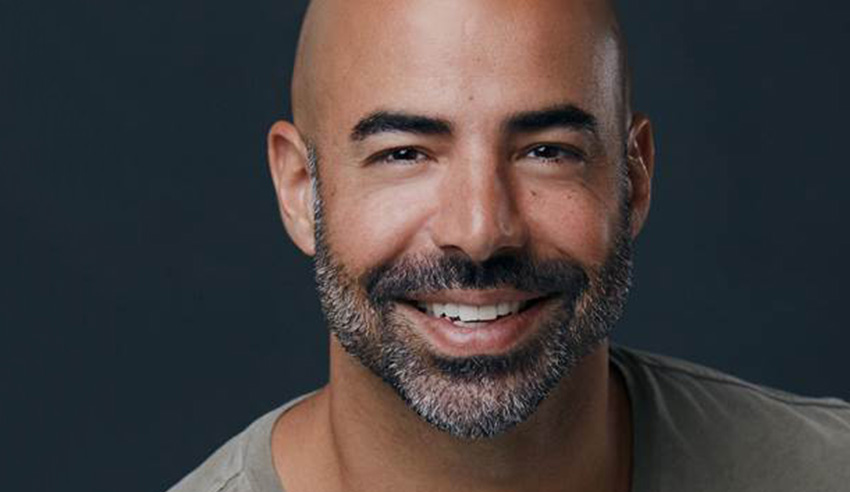With COVID-19 exacerbating issues for millions of people in accessing global justice systems, technology will be key to ensuring a fairer society.

Just over one month ago, Lawyers Weekly reported that smart communications provider Legaler has donated over $2 million in free software licences to help lawyers better manage remote working during the age of coronavirus. For company founder Stevie Ghiassi, however, there can be and is more that legal tech professionals can do to provide access to justice.
A need for legal crowdfunding
In light of such systemic issues, together with his capacity to make change, Mr Ghiassi and Legaler have founded Legaler Aid, a legal crowdfunding platform that allows litigants in social justice cases to submit their campaign for submission, “enabling them to raise the funds needed to navigate the overpriced judicial system”.
According to Legaler Aid head of community Lachlan Ellison, almost 5 billion people around the world live outside of access to justice.
“Even in developed countries like the United States and United Kingdom, 80 percent of people are unable to get legal help. This justice gap is growing wider, not narrower, as a result of ever-growing income equality, racial tension and political anxiety,” he outlined.
“Now, the COVID-19 pandemic poses the greatest threat yet, with the incoming termination of millions of jobs, abandonment of leases and bankruptcy of small and medium enterprises. We are heading into the greatest justice crisis of our times. This crisis will inevitably push the most important legal cases, run by society’s most vulnerable, out of the queue.”
A system-level problem, Mr Ellison continued, “needs a system-level solution”.
“While legal aid is a powerful tool for ensuring everyone gets their day in court, funding provided is often too little, the scope of litigants too narrow, and the legal advice offered inadequate to make social change. What’s more, taxpayers have no visibility on the cases they funded,” he said.
Legaler Aid
Speaking about the platform, Mr Ellison said that “passionate donors are empowered to give directly to the cases they want to fund, creating concrete social change where it counts: in the courts”.
“While the case is ongoing, donors get the transparent and granular case updates that they want and deserve from non-profits in 2020,” he explained.
“In an era of political, racial and economic tension, Legaler Aid is using technology to give real power to donors’ money, and helping the legal cases that matter most get to court.”
In July of this year, Mr Ghiassi spoke with Lawyers Weekly about the “burgeoning” legal tech market in Australia being bolstered by “fertile” conditions, which – together with new business models and opportunities arising from blockchain technology – means that initiatives such as Legaler Aid can provide citizens across the board with access to legal help, in multiple formats, utilising technology.
In the long run, Mr Ghiassi noted, Legaler Aid will list crowdfunding cases from all over the world, “however, to begin with we are onboarding cases from the US and Australia, the two countries in which we have already established charitable organisations”.
“Since the platform went live, we have already been getting requests from all over the world and in a wide variety of areas all the way from genocide to wrongful dismissal,” he said.
The first case on the platform for which funds are being raised, he said, is that of Gaige Grosskreutz, the sole survivor of the recent shootings in Kenosha, Wisconsin, where 17-year-old Kyle Rittenhouse allegedly shot and killed two people with an AR-15 rifle and injured Mr Grosskreutz.
“The incident has been headlining news [in the US], and leaked documents from the White House showed that the Trump Administration was advised to portray the Rittenhouse as national hero, who has become a very polarising figure,” Mr Ghiassi detailed.
“To give you an example of the power of crowdfunding, although Rittenhouse’s case was initially taken down from GoFundMe for infringing on their platform’s guidelines, his lawyers were quick to set up an independent website that has since been able to raise over $3 million dollars in a case that has been highly politicised in the United States.”
Access to justice moving forward
As the new year approaches, it has become apparent – in the wake of the pandemic – that there is an absolute need for remote and virtual access to legal assistance, Mr Ghiassi posited.
“Legaler Aid ran a pilot with the Supreme Court of Tennessee, where law students from Vanderbilt Law School provided pro bono legal advice through Legaler’s video communication platform. The pilot program showed that the legal clinic could service a far larger audience given the physical distance of many clients in rural areas that don’t necessarily have a local legal clinic available and that many disabled clients that previously found it difficult to access help were also benefited,” he said.
More broadly, however, it remains clear that the status quo of limited access to justice is “not showing any signs of improving”, he mused, with governments across the globe continuing to cut legal aid funding.
“In COVID-19, we have the worst justice crisis ever seen emerging, which has already shown a severe spike in areas of employment, eviction, bankruptcy and family law. We have a rare instance where the existing justice crisis is being compounded by a confluence of health, political, racial injustice, and an ever-worsening economic crisis,” Mr Ghiassi concluded.
“We believe that we need new ways of coping with this fallout and that technology can hold the key. That is why we established Legaler Aid.”

Jerome Doraisamy is the managing editor of professional services (including Lawyers Weekly, HR Leader, Accountants Daily, and Accounting Times). He is also the author of The Wellness Doctrines book series, an admitted solicitor in New South Wales, and a board director of the Minds Count Foundation.
You can email Jerome at: